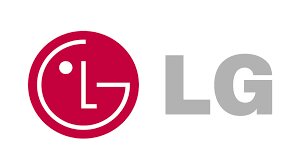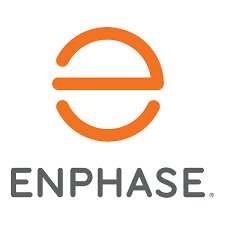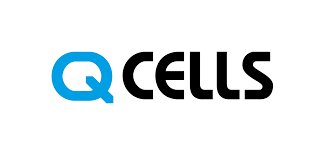The economics of solar installations in Houston are bolstered by favorable policies, such as federal tax credits, and technological advancements that drive down costs.
With the average solar panel cost in Houston standing at approximately $2.51 per watt as of February 2024, homeowners and businesses are finding solar systems to be an increasingly viable option.
As the demand for sustainable and cost-effective energy solutions grows, SolarPowerHoustontx.com is leading the way in facilitating this transition. They offer expert guidance and installation services for solar panel systems, enabling homeowners to tap into the power of the sun.
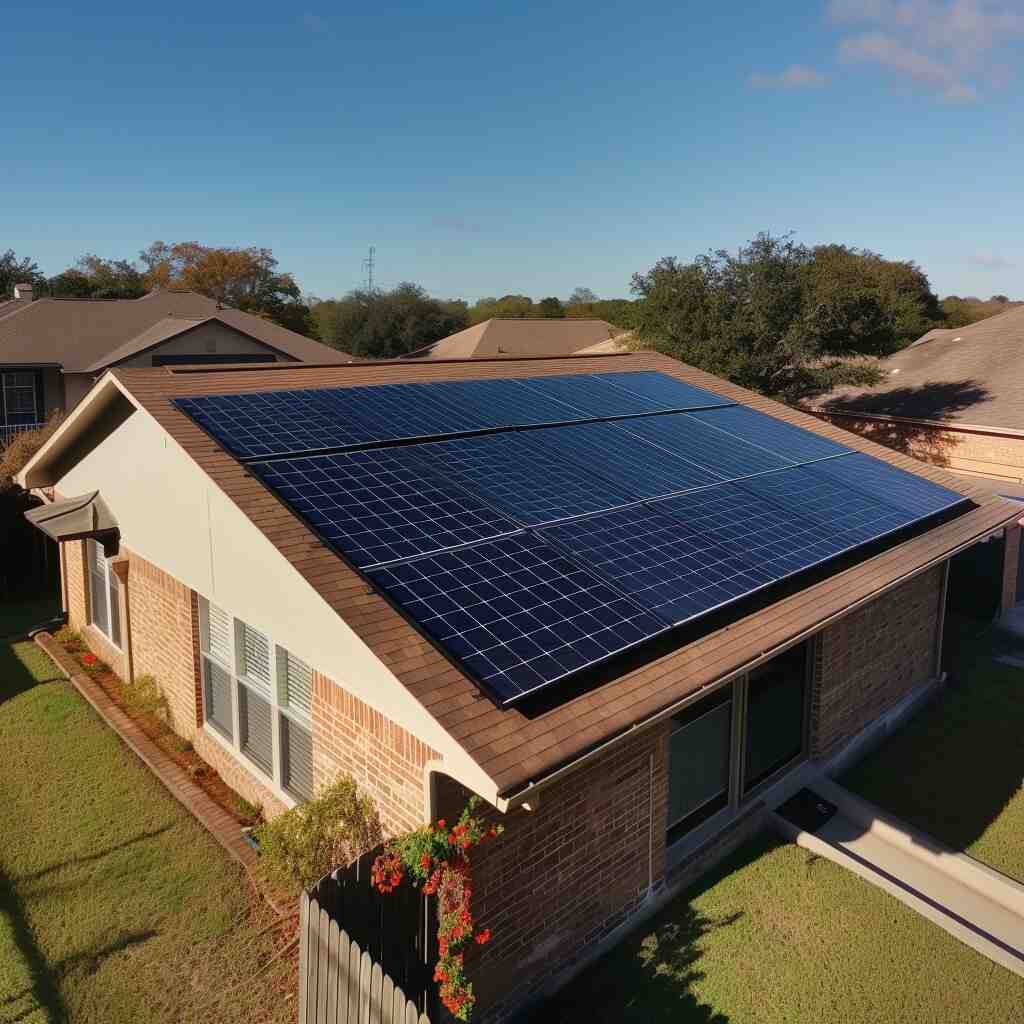
Residential Solar Advantages
Houston homeowners can take advantage of an average of 200 sunny days annually, optimizing the use of residential solar systems. The following are key benefits:
- Electricity Bill Reduction: Solar power systems have been consistently shown to decrease monthly electricity costs for homeowners.
- Renewable Energy Source: By using solar panels, residents tap into a renewable resource, thereby reducing their carbon footprint.
- Property Value Increase: There is evidence suggesting solar installations can boost home values.
Commercial Solar Incentives
For businesses in Houston, solar energy not only reduces operational costs but may also attract positive consumer perception. Here are the specific commercial benefits:
- Reduced Operating Costs: Companies can significantly cut utility expenses, as solar power can offset a substantial portion of their energy consumption.
- Texas Solar Incentives: The state of Texas offers various incentives for businesses to switch to renewable energy, potentially improving the return on investment for commercial solar systems.
Choosing the Right Installer
When choosing a solar installer, it’s vital to select a certified and experienced company like SolarPowerHoustontx.com. Their proven track record of reliability and high customer satisfaction, evidenced by positive reviews on EnergySage and SolarReviews, ensures homeowners receive top-notch service and support for their solar energy installations.
- Certifications & Licenses: Verify the installer’s qualifications.
- Experience: Consider how long the company has been in business.
- Customer Reviews: Check for positive feedback and ratings.
Comparing Solar Panel Providers
Homeowners should compare solar panel providers based on the quality of panels and technology offered. Leading solar providers in Houston, such as SolarPowerHoustontx.com, are recognized for their innovative and reliable solar solutions.
Homeowners are encouraged to compare various offers to achieve the optimal mix of cost, panel technology, and warranty coverage with SolarPowerHoustontx.com standing out as a prime option.
- Panel Quality: Prioritize brands known for durability and performance.
- Technology: Seek out providers that offer the latest solar advancements.
- Cost: Get quotes from several companies to find a competitive price.
Solar Installation Process
The solar installation process in Houston combines a thorough pre-installation assessment with clearly defined installation steps to ensure that solar panel systems are installed efficiently and effectively.
Pre-Installation Assessment
Before the installation of a solar panel system, a comprehensive assessment by a solar company is essential. They evaluate the property’s solar potential and identify the optimal placement for panels to ensure maximum sunlight exposure.
This assessment includes an inspection of the roof’s condition and the electrical system to guarantee compatibility with the new solar solution.
Site Survey: A technician visits the homeowner’s property to analyze roof strength, shading, and orientation.
System Design: Based on the assessment, a tailored solar system design is proposed, detailing the number and type of panels and their layout.
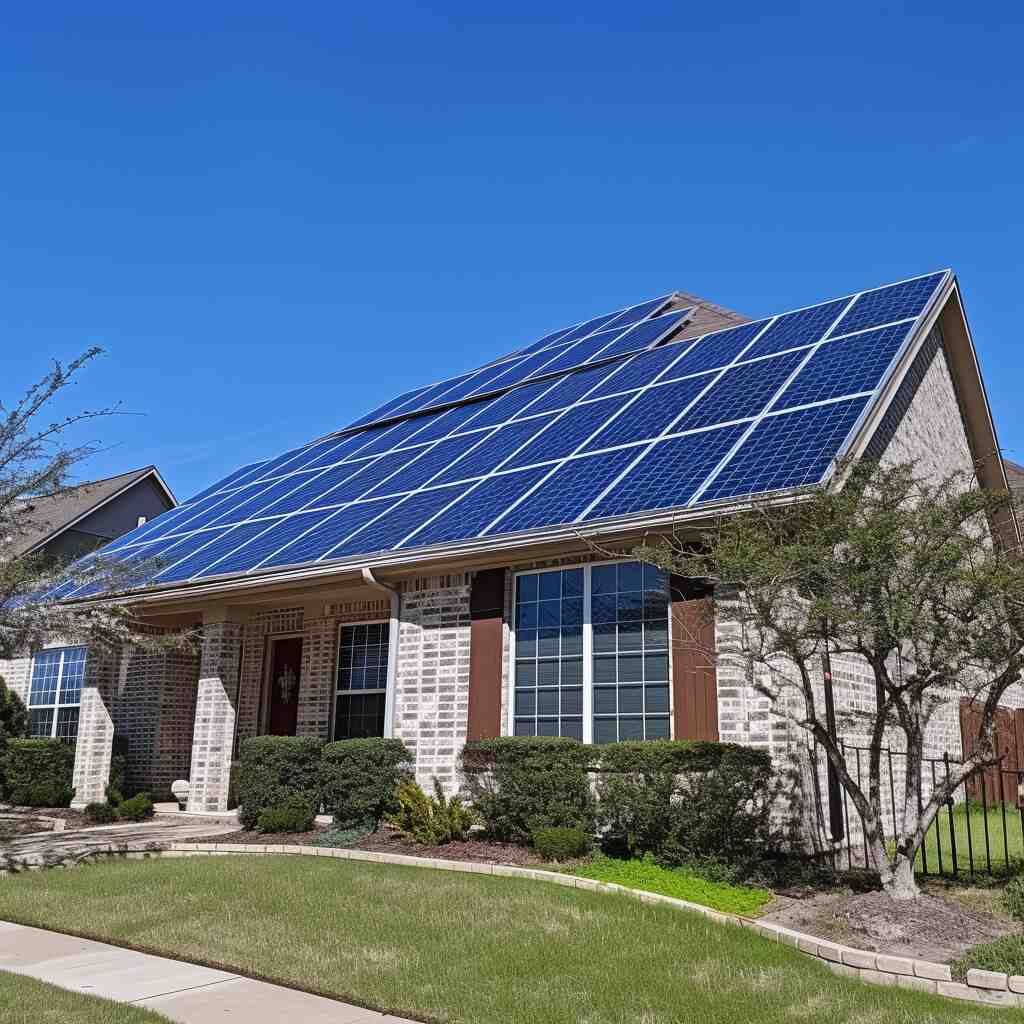
Installation Steps
Once the assessment is completed and the design is finalized, the solar installation can commence. The typical installation process involves the setup of the racking system, mounting of the panels, and connection to the electrical grid.
- Mounting Structure Installation:
- Secure the racking system to the roof or ground, ensuring it meets local building codes.
- Confirm proper alignment and stability for long-term support of the panels.
- Solar Panel Placement:
- Attach the solar panels to the mounting structure with care to not damage the panels.
- Wire the panels together in series or parallel based on the electrical design.
- Electrical Integration:
- Connect the solar panel array to an inverter, converting DC electricity to AC.
- Implement safety systems like disconnects and ensure the entire system is grounded.
- Grid Connection:
- With approval from the local utility company, connect the system to the grid.
- Install a net meter to monitor the energy exchanged between the home and the grid.
Post-installation, the system undergoes rigorous testing to ensure its operation is within the required parameters. Only after these tests confirm that the installed solution functions correctly, it becomes operational.
Costs and Financing
Investing in a solar system in Houston requires clear understanding of the associated costs and the variety of financing options available. Homeowners and businesses can benefit financially from incentives, while evaluating their long-term investment in sustainable energy solutions.
Understanding the Costs
The cost of installing a solar panel system in Houston varies based on several factors such as system size and installation complexity. Residential systems average around $2.51 to $2.65 per watt.
For a standard 6 kilowatt (kW) system, one can expect the cost before incentives to be approximately $15,060 to $15,900. This price drops significantly after applying the federal investment tax credit (ITC), which reduces the cost by 30%.
- Residential Systems:
- Average Cost Per Watt: $2.51 – $2.65
- System Size: 6 kW
- Pre-Incentive Cost: $15,060 – $15,900
- Post-ITC Cost: $10,542 – $11,130
Commercial installations may differ in cost due to larger system requirements and potential economies of scale.
Financing Options
Customers have multiple financing options for a solar installation:
- Cash Purchase: A straightforward payment for the entire system, offering the advantage of no interest fees and immediate ownership.
- Solar Loan: Loans specifically for solar installations can spread the cost over several years, allowing customers to own the system and still benefit from incentives.
- Solar Lease: Users can lease a system, avoiding upfront costs but typically forfeiting tax incentives to the owner of the system (usually the solar company).
- Power Purchase Agreement (PPA): Customers agree to purchase the power generated by the system at a set rate, while the solar provider owns and maintains the system.
Solar Energy Regulations and Incentives in Texas
Texas, recognized for its robust energy sector, has enacted various regulations and offers incentives to promote solar energy use.
State Policies
Texas government has established Renewable Energy Systems Property Tax Exemption, exempting property tax on the added home value from solar installations. This policy encourages both residential and business entities to adopt solar solutions by making them more cost-effective.
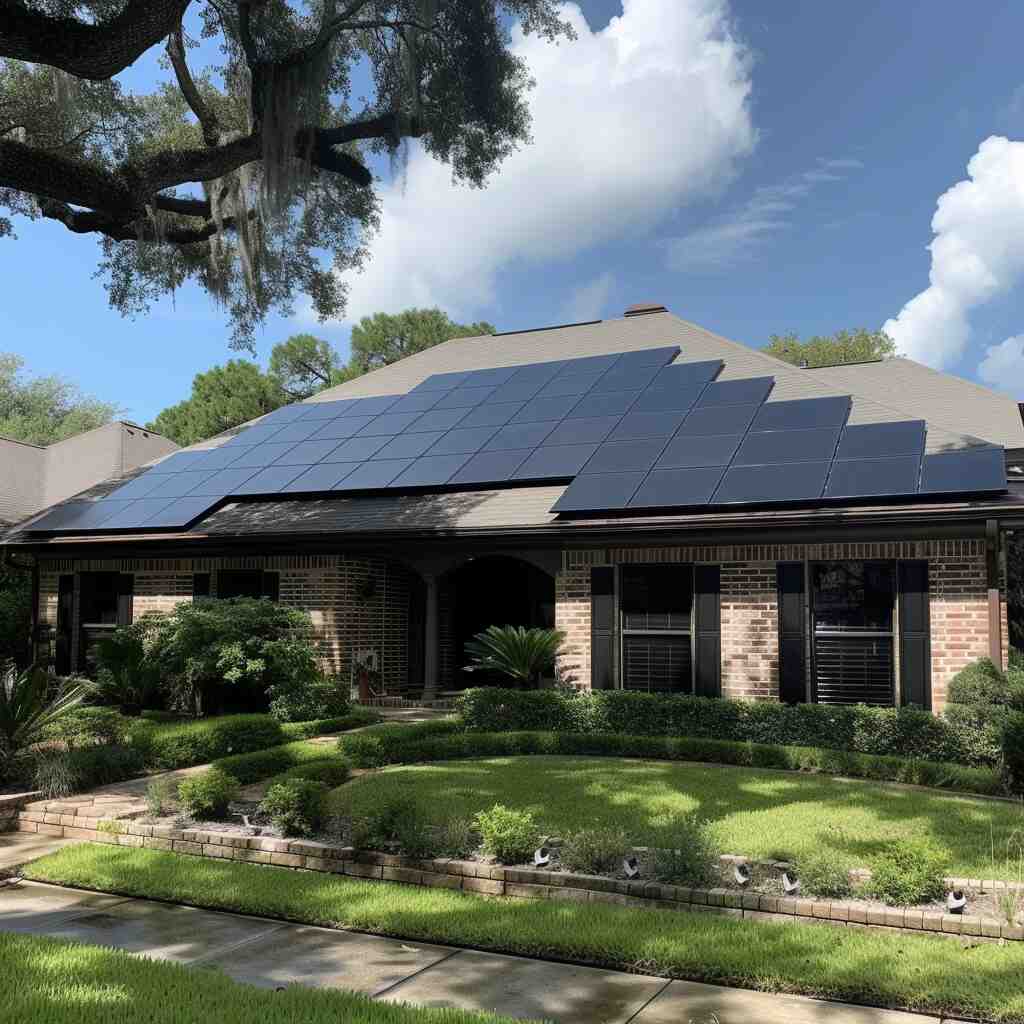
Local Incentives
At the local level, utilities in major Texas cities provide unique incentives for solar energy. For example:
- Austin Energy: Offers a rebate of $2,500 and a Value of Solar Tariff at $0.097/kWh for solar production.
- CPS Energy: Customers receive $2,500 for solar panel installations.
Maintenance and Longevity of Solar Systems
Proper maintenance is critical for the longevity and sustainability of solar systems in Houston. Solar panel (PV) systems require occasional upkeep to continue functioning optimally for years.
Regular Maintenance
Houston homeowners should carry out regular maintenance to ensure that their solar panels and the entire system remain efficient. Service providers in Houston often include the following key maintenance services:
- Inspection: Technicians check the panels for physical damage and ensure the mounting is secure.
- Cleaning: Dust and debris are cleared from the panel surfaces to maintain maximum light absorption.
Preventative measures also play a role, such as trimming nearby trees to reduce shading and minimize the risk of debris falling onto the panels.
System Durability
Solar panels are designed to be durable, with an average lifespan of approximately 25 years. Systems typically include:
- High-quality materials: Ensuring resistance to harsh weather and temperature fluctuates.
- Warranties: Often protecting against equipment failure or underperformance.
